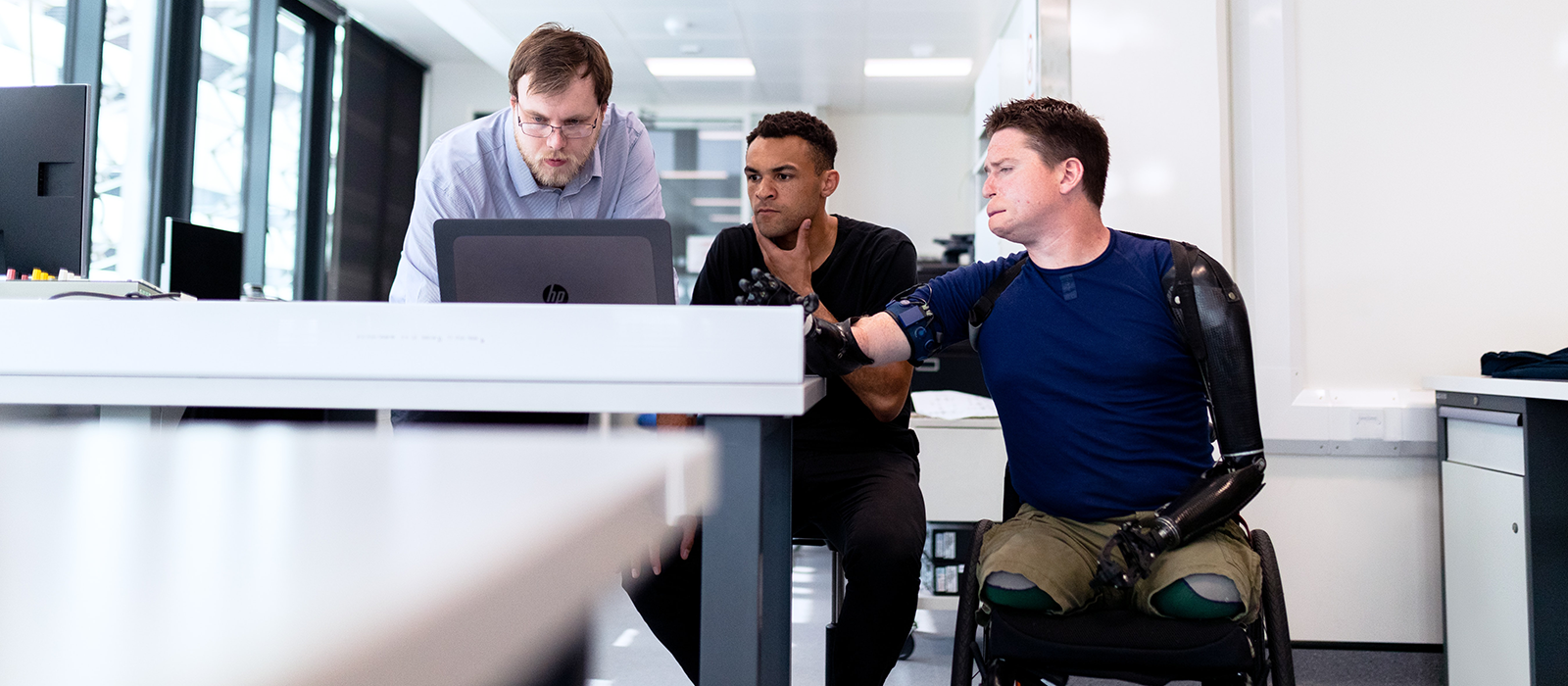National AccessAbility Week: Communities that work for everyone


University staff, students and researchers are introducing supports and exploring ways to make communities more inclusive for people with disabilities. This National AccessAbility Week, learn about some of the initiatives underway and help us build a more accessABLE future.
International study is very beneficial: it offers students the chance to learn about different cultures, build global networks and gain new perspectives on the world’s challenges. Universities have introduced new initiatives under the Global Skills Opportunity program to ensure all students, including those with a disability, can take part.
In 2018, the University of Waterloo’s AccessAbility Services began identifying common concerns of students with disabilities considering an exchange. Commonly cited were concerns around physical accessibility, maintaining necessary medical relationships, receiving academic accommodations and fear of what might happen during a mental health crisis abroad. AccessAbility Services now offers individual appointments to help students with disabilities choose a destination that meets their needs and address any concerns. They also provide a toolkit of tips and strategies to help set students up for success.
With a renewed focus on accessibility, many universities are overhauling their spaces and teaching strategies to better accommodate students with disabilities. Concordia University, for example, recently completed a review of its accessibility policy, which now includes important expansions of accessibility measures and accommodations for students, staff and faculty. The university has also launched a pilot project on accessible teaching and course delivery and has renovated many physical spaces on campus.
Researchers Drs. Claire Davies and Beata Batorowicz at Queen’s University are also playing a key role in developing technology and practices that improve accessibility. Following the introduction of the Accessible Canada Act in June 2019, the researchers noticed a lack of clarity in the Act’s standards for augmentative and alternative communication (AAC) technologies—communication tools that replace speech. Knowing the importance of these technologies to the lives of people who need them, the researchers are conducting a study to inform the Act’s standards, ensure devices are effective and increase employment and social opportunities for people with disabilities.
As part of Universities Canada’s Innovative Designs for Accessibility (IDeA) competition, students across Canada have invented creative technology and devices to assist people with disabilities. Students at the University of Victoria invented The CareChanger, a device that uses temperature and humidity sensors to promptly notify caregivers of people with urinary incontinence of their care needs. Another team of student researchers from Dalhousie University invented the Swing Door Shelter, a shelter that attaches to a vehicle to help wheelchair users remain dry and comfortable when entering or exiting their vehicle in rain or snow.
Graduate students at the Université du Québec à Montréal can now take part in a short program that educates professionals working with the community on how to meet the needs of people with a disability or deafness. The only francophone program of its kind, it will help train health workers, social workers, sign language interpreters and teachers, to name a few, on how to effectively work with and support these populations.